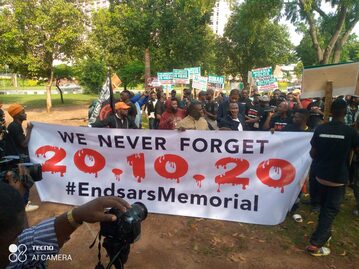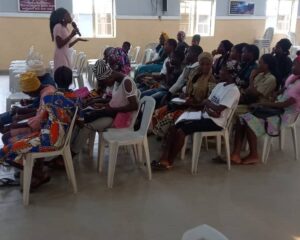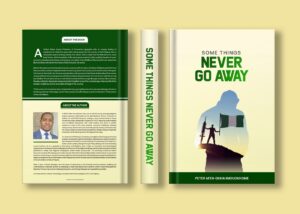They say you might forget what someone said, but you never forget how they made you feel. We remember both. How they dared us, then denied that they did. How we felt hope in the middle of comradeship at the beginning, then despair and anger shortly afterwards.
We remember every detail.
As with just any momentous gathering in the history of our great nation Nigeria, the End SARS protest of October 2020 easily goes down as one of the greatest national movements driven by self-motivated Nigerian youths – and for a just cause. What began as an isolated call for the scrutiny and re-assessment of the high handedness of the defunct police unit – the Special Anti-Robbery Squad (SARS) soon metamorphosed into a call for good governance and accountability by the youths across the country.
The climax – or the anti-climax – of this unbiased and historic call was the ultimate sacrifice paid by a few passionate youths for a noble cause.
The hallmark, for me, was the slaughter by the same security forces that have sworn to protect the citizenry. It felt surreal that against the run of play of more advanced nations, the Nigerian security forces were oblivious to the changes of modern public dialogue and engagement, and out of tune with the ongoing reformation and transformation of moribund institutions that have been present for decades.
We are still at the mercy of a largely unstructured central security system that is threatened by wide calls for a decentralization – the establishment of a state-owned internal security apparatus or ‘a state police’. With cases being made by some state governors in the country, there is a ray of hope of an alignment with a transformation program that largely assures the security of millions of Nigerian people.
The Nigerian Police Force and other security forces have unfortunately been widely reputed by the independent media (like Amnesty international) to have little tolerance and a history of extended human rights abuses and violations. Experts have said this is the sign of a failed system that undervalues and dehumanizes the police, leading the oppressed to become the oppressor.
Thus, it is not uncommon to hear tales of extra-judicial killing, oppression, servitude and man-handling of the citizenry across the country by the same force that is saddled with internal peacekeeping and the protection of lives and properties.
In October 2020, as the cries for justice by the Nigerian youths in Lagos, Abuja and other cities gathered momentum over a week, I recall making frantic searches on the internet for documentaries of past cases of gross human rights abuses by the Nigerian Police forces. As expected, I was inundated with woes from the young and old – youths, especially across social media.
Tales of blood and extrajudicial killing of agile, young and flourishing men and women were told on Nairaland, Twitter, Instagram and Facebook. The squeamish disappearance of able-bodied and well-to-do professionals after faceless encounters with the dreaded SARS units was being told with drops of tears.
In Abuja, Aisha Yesufu and a group of youths rallied to and from strategic places in the city such as the Unity fountain and Aso rock to call for justice. They were met with rounds of tear gas, water cannon, warning live bullets, and most worrisome, an invasion by armed wielding hoodlums sponsored by unmasked Nigerian officials were severally reported with a sinister motive to disorientate the advancing march of youths.
Nigerians abroad, at home, and at those who are only Nigerian at heart, championed the cause with their voices, or money, or both.
By Monday, the 19th of October 2020, there were no justifications for a backdown. It was just too late as the youths rode on days of protest at the Lekki toll plaza. The ground itself has by this time assumed a fun fare and musical shows. Shouts of ‘food e no dey!, Water no dey’ – ‘Nigeria jagajaga’ and Timi Dakolo’s anthem – ‘We are all we have’’ rented the land.
I saw passion, goosebumps, hands raised in unison by youths without prior knowledge of their background and recourse to educational, political or religious affiliations at the historic Lekki grounds. I could not help but admire the dexterity, togetherness and Nigerian spirit demonstrated by the Nigerian youths. If I had any doubts of a new generation rising, it was soon defeated.
It is surprising, yet at the same, ironically expected, that this wave of activism was interpreted to mean more than it was. The movement stirred deja vu in the minds of our leaders, who were reminded of their younger selves overthrew the sitting government, in a similar wave of passion. Yet, what was not expected at all, was how they would react to it.
I can never forget how the news began trickling in of the show of force on unarmed Nigerian youths fighting for justice. A stained Nigerian flag, missing youths, unresponsive corpses, maimed bodies and tears. It was all too much to take in. I was just coming to terms with the effects of the pandemic and my job resignation, that was the straw that broke my back.
… and so, one year later, the question still pervades the air – ‘have our causes and cries been heard? Are we charged for progress, economic development and all-inclusiveness?
We Will Never forget.







